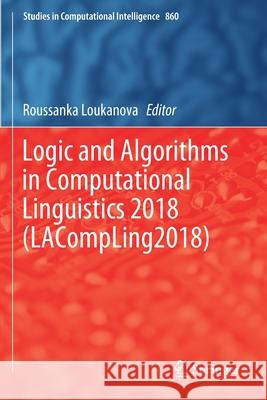Logic and Algorithms in Computational Linguistics 2018 (Lacompling2018) » książka
topmenu
Logic and Algorithms in Computational Linguistics 2018 (Lacompling2018)
ISBN-13: 9783030300791 / Angielski / Miękka / 2020 / 205 str.
Logic and Algorithms in Computational Linguistics 2018 (Lacompling2018)
ISBN-13: 9783030300791 / Angielski / Miękka / 2020 / 205 str.
cena 562,23
(netto: 535,46 VAT: 5%)
Najniższa cena z 30 dni: 539,74
(netto: 535,46 VAT: 5%)
Najniższa cena z 30 dni: 539,74
Termin realizacji zamówienia:
ok. 22 dni roboczych.
ok. 22 dni roboczych.
Darmowa dostawa!
This book focuses mainly on logical approaches to computational linguistics, but also discusses integrations with other approaches, presenting both classic and newly emerging theories and applications.Decades of research on theoretical work and practical applications have demonstrated that computational linguistics is a distinctively interdisciplinary area. There is convincing evidence that computational approaches to linguistics can benefit from research on the nature of human language, including from the perspective of its evolution.
This book addresses various topics in computational theories of human language, covering grammar, syntax, and semantics. The common thread running through the research presented is the role of computer science, mathematical logic and other subjects of mathematics in computational linguistics and natural language processing (NLP).
Promoting intelligent approaches to artificial intelligence (AI) and NLP, the book is intended for researchers and graduate students in the field.











